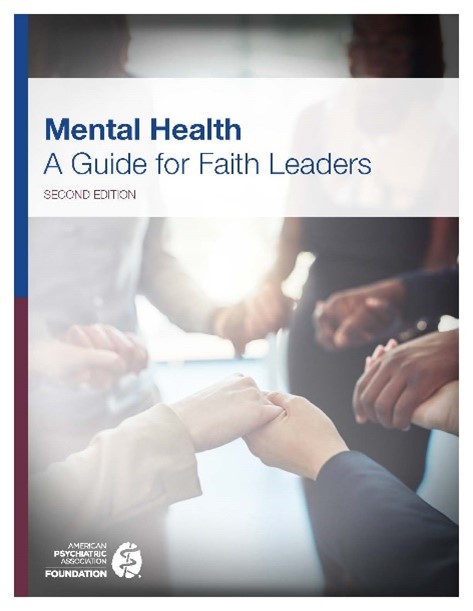Mental Health and Faith Community Partnerships Can Help Improve Access to Care
For many people, faith or spirituality are strongly connected to their mental health and emotional well-being, though it may not be directly addressed within the faith community. According to a recent survey from APA, about 60% of adults say that faith or spirituality is an important factor in supporting their mental wellness. However, just half of those who belong to a religious community say that mental health is discussed openly and without stigma.
According to a study published this week in Psychiatric Services, partnerships between mental health and faith communities hold much promise for helping to improve mental health symptoms, increase mental health literacy, reduce stigma, and make needed referrals for mental health care.
The authors note that the faith community and faith leaders—priests, imams, rabbis, ministers, and other clergy as well as lay leaders and groups—are increasingly addressing mental health support and care.
The researchers examined previous studies and identified and evaluated 32 unique partnerships between the mental health sector and faith communities. They found that most partnerships used multicomponent approaches, particularly involving training the faith community; mental health education for the broader community; and direct counseling. The study also identified several facilitators and barriers to effective mental health/faith community partnerships. Facilitators of effective partnerships included:
- Having diverse perspectives represented.
- Bilateral and diverse communication channels such as in- person, print, and online.
- Engagement with faith partners who recognized the importance of mental health or who were already providing similar services.
- Reciprocal relationships and equal power.
- Satisfaction with leadership and group dynamics.
- Building on community assets such as preexisting relationships, resources, and infrastructure.
Barriers included:
- Tensions between partners, including mismatch in interests and attitudes toward mental illness.
- Limited communication between partners.
- Limited resources (time, skills, funding).
- Lack of representation of the community.
The study highlights “the capacity of communities of faith in addressing mental health across the continuum of care, including prevention, education, stigma reduction, screening and referral, and the delivery of evidence-based treatment and spiritually based approaches,” the authors conclude.

APA Foundation Initiative
The APA Foundation 's Mental Health & Faith Community Partnershipbrings psychiatrists and other mental health professionals together with faith leaders to create dialogue. This partnership and dialog have helped inform the development of educational resources and training for both disciplines. The APA Foundation recently released the second edition of its resource guide, Mental Health: A Guide for Faith Leaders. The guide provides faith leaders with the insights and tools to understand mental health concerns and support congregants with mental health challenges. Read more.
References
Perez, L.G., et al. 2024. Partnerships Between Faith Communities and the Mental Health Sector: A Scoping Review. Psychiatric Services In Advance.
APA Foundation. 2024. Mental Health: A Guide for Faith Leaders
